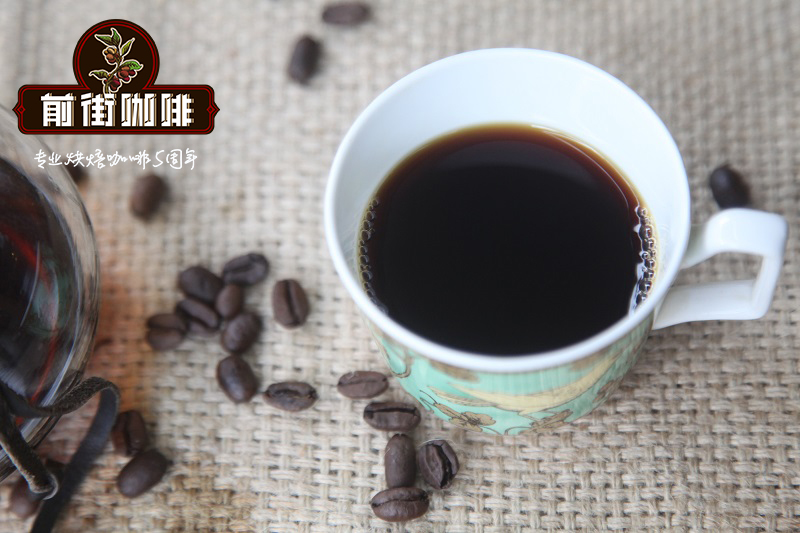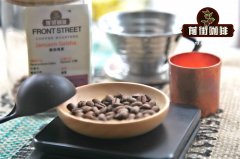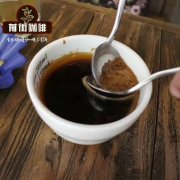How do you drink Suriname coffee? Does Suriname produce coffee? History of coffee cultivation in Suriname

Professional coffee knowledge exchange more coffee bean information please follow the coffee workshop (Wechat official account cafe_style)
Suriname is located in the north of South America. Its name comes from the indigenous people. It is bordered by French Guiana in the east, Brazil in the south, Guyana in the west and the Atlantic Ocean in the north. It has a tropical rain forest climate. The land area is about 164000 square kilometers, which is slightly smaller than that of Henan Province in China. There are coastal lowlands and marshes in the north, savannas in the middle and hills and low plateaus in the south. Suriname, once a colony of the Kingdom of the Netherlands in South America, became an overseas autonomous province of the Netherlands in 1954 and became independent in 1975. The capital Paramaribo (Paramaribo) is a commercial port at the mouth of the Suriname River.
Suriname is a racially, linguistically and religiously diverse country with a population of about 546000. Indians account for 33%, Creole 31%, Indonesian 15%, jungle blacks 10%, Indians 4%, Chinese 3%, whites 1%, and other races 3%. Dutch is the official language and Suriname is widely spoken. 42% of the residents are Christian, 20% are Hindu and 13% are Islamic. The land area is 163821 square kilometers and the population density is 2.9person / square kilometer. GDP totaled US $3.79 billion, with a per capita GDP7096 of US $. In 2004, per capita GDP ranked 85th in the world.
In addition to cotton, cocoa and indigo, coffee and sugar have become successful cash crops in Suriname. As the BHS project shows, other factories have moved to Suriname because of the planting economy. From now to the past, the success stories in particular are obvious: crops that have a huge impact on landscapes or crops that still exist widely today. But this is not the whole story.
Suriname (Surinam) was the first country in South America to grow coffee, and Norway was once a major importer of coffee products. However, the country's output is very small today, and it is mentioned here only for historical reasons.
The first coffee seeds arrived in Suriname around 1712, and growers' excitement increased every 4-5 years when the next generation of coffee teenagers reached adulthood. Coffee is a "tree product" and the rapid expansion of production in Suriname has significantly changed the appearance of the colony. Until the rise of coffee growers, slave Africans were used to produce sugar cane and clear forest areas. This mainly occurs in the dry sand dunes in the upper reaches of Suriname, the Commewijne en Cottica River. Coffee production is closer to the ocean in thick clay and leads to clashes in Paramaribo, where people try to steal each other's land to grow coffee trees.
The coffee craze is not surprising, and people have been looking for crops that can thrive after sugar cane production. The success of coffee came at a heavy price: people were enslaved on a large scale and forced to work on polder plantations in Suriname.
The Dutch, who settled in Suriname in 1667, introduced coffee trees from Java in the early 18th century. The first coffee trees were given by the mayor of Amsterdam to a Flemish pirate, a Hansback. To be exact, these coffee trees were planted in the then Dutch Guiana (DutchGuyana), and a few years later, they were widely planted in the neighboring French Guiana. At that time, there was a French criminal named Mourgues, who was promised a pardon and the right to enter and leave France if coffee trees were introduced into French colonies.
Qianjie coffee: Guangzhou bakery, the store is small but a variety of beans, you can find a variety of unknown beans, but also provide online store services. Https://shop104210103.taobao.com
Important Notice :
前街咖啡 FrontStreet Coffee has moved to new addredd:
FrontStreet Coffee Address: 315,Donghua East Road,GuangZhou
Tel:020 38364473
- Prev

Introduction to East Timor Coffee producing area: climatic altitude cultivation in Letefort County, East Timor Coffee producing area
Professional coffee knowledge exchange more coffee bean information please follow coffee workshop (Wechat official account cafe_style) East Timor Coffee East Timor 1, country full name: East Timor Democratic Republic 2, population: about 1.06 million people 3, capital: Dili 4, language: Dayton abandoned origin improved quality through external assistance in 1815, Portugal became a colony of Portugal.
- Next

India Monsooned Malabar A Coffee Bean_How about Indian Coffee
Professional coffee knowledge exchange More coffee bean information Please pay attention to coffee workshop (Weixin Official Accounts cafe_style) In fact, India is still a country rich in coffee beans. About 250,000 people in the country grow this economic product. Coffee is suitable for growing in a warm environment. The Tropic of Cancer is called coffee belt, but it is afraid that high temperature will destroy the characteristics of beans, so most of them are planted in high altitude areas.
Related
- Does Rose Summer choose Blue, Green or Red? Detailed explanation of Rose Summer Coffee plots and Classification in Panamanian Jade Manor
- What is the difference between the origin, producing area, processing plant, cooperative and manor of coffee beans?
- How fine does the espresso powder fit? how to grind the espresso?
- Sca coffee roasting degree color card coffee roasting degree 8 roasting color values what do you mean?
- The practice of lattes: how to make lattes at home
- Introduction to Indonesian Fine Coffee beans-- Java Coffee producing area of Indonesian Arabica Coffee
- How much will the flavor of light and medium roasted rose summer be expressed? What baking level is rose summer suitable for?
- Introduction to the characteristics of washing, sun-drying or wet-planing coffee commonly used in Mantenin, Indonesia
- Price characteristics of Arabica Coffee Bean Starbucks introduction to Manning Coffee Bean Taste producing area Variety Manor
- What is the authentic Yega flavor? What are the flavor characteristics of the really excellent Yejasuffi coffee beans?

